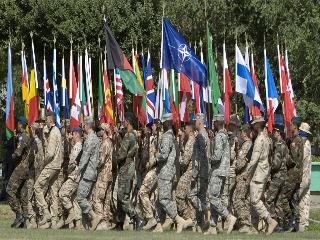Georgia Better Positioned Than Ukraine Ahead of Vilnius EAP Summit
By Alexander Beck (the 13/11/2013 issue of the CACI Analyst)
On November 28-29, six post-Soviet republics will convene in Vilnius for the Eastern Partnership Summit. The “Vilnius Summit” will bring together leaders from Armenia, Azerbaijan, Belarus, Georgia, Moldova, and Ukraine with the EU’s high officials to discuss the current state and future objectives of these six potential EU states. Two countries in particular – Georgia and Ukraine – hope to sign trade agreements with the EU, which they trust will further their ambitions to one day enter into the European Union. Both nations, however, enter the Vilnius Summit under significantly differing political situations, despite their similar recent political histories. The political trajectory of both nations, moreover, suggests that Georgia is more likely to sign an economic agreement with the EU than Ukraine this November.
“CACI Analyst, October 30, 2013”
NATO in Afghanistan – Paralysis as Policy?
By Richard Weitz (the 30/10/2013 issue of the CACI Analyst)
NATO’s inability to commit to a definite role in Afghanistan beyond 2014, along with perceived strategic setbacks in Central Asia and the South Caucasus, are reinforcing the narrative promoted by the Taliban, al-Qaeda, Iran, and to a lesser extent Russia and China, that a war-weary West is abandoning Eurasia. Urgent measures are needed during the next months to reverse this perception before it gains irreversible momentum. The perception is already leading regional players to hedge against the expected consequences of a diminished NATO role. NATO needs to reaffirm and clarify its commitment to Afghanistan and Eurasia.

Georgia's Former President Saakashvili may Face Multiple Charges
By Archil Zhorzholiani (the 30/10/2013 issue of the CACI Analyst)
Criminal proceedings could be opened against Georgia’s former President Mikheil Saakashvili after the end of his second presidential term and the October 27 presidential elections, Georgian Prime Minister Bidzina Ivanishvili stated on October 21.


